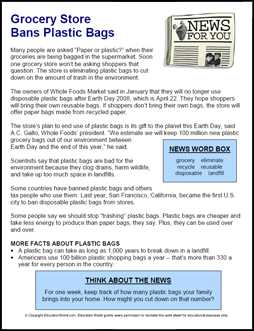
Plastic bags have long been a staple in grocery stores, but in recent years there has been a growing concern about their environmental impact. With millions of plastic bags ending up in landfills and oceans each year, many grocery stores are reevaluating their use of these single-use items. From offering reusable bags to implementing bag bans, supermarkets around the world are taking steps to reduce their reliance on plastic bags.
One of the most common alternatives to plastic bags is the reusable bag. These bags are typically made of more durable materials such as canvas or nylon, and can be used over and over again. In addition to being more eco-friendly, reusable bags are often sturdier and can hold more groceries than their plastic counterparts. Many grocery stores now offer reusable bags for purchase at the checkout, and some even provide incentives, such as discounts or loyalty points, for customers who bring their own bags.
In addition to promoting reusable bags, some grocery stores are implementing outright bans on plastic bags. These bans can vary in their scope and enforcement, but the goal is the same: to reduce the use of single-use plastic bags. In places like California and Hawaii, plastic bag bans have been in effect for several years, and many other states and countries have followed suit. Some grocery stores have voluntarily banned plastic bags even in the absence of legislation, recognizing the impact these bags have on the environment.
While the movement to phase out plastic bags in grocery stores is gaining momentum, there are still challenges to overcome. Some customers may resist the switch to reusable bags, either out of convenience or concern about hygiene. Additionally, finding suitable alternatives to plastic bags can be a logistical challenge for grocery stores, as they must balance cost-effectiveness with sustainability. However, with growing public awareness and support for reducing plastic waste, it is likely that the trend of phasing out plastic bags in grocery stores will continue to grow.
- Are grocery stores transitioning to environmentally-friendly alternatives?
- The global movement towards reducing plastic waste
- Key reasons behind the shift away from plastic bags
- 1. Environmental impact
- 2. Pollution and waste reduction
- 3. Consumer demand for sustainability
- Innovative solutions: Exploring biodegradable and compostable options
- The role of legislation and government initiatives
- Benefits of legislation and government initiatives:
- The challenges and considerations faced by grocery stores
- 1. Environmental Impact
- 2. Customer Convenience
- Tips for consumers: How to reduce your own plastic bag usage
- Question-answer:
- What are some of the latest updates on the phasing out of plastic bags in grocery stores?
- Why are grocery stores phasing out plastic bags?
- Are all grocery stores phasing out plastic bags?
- What are some alternatives to plastic bags that grocery stores are offering?
- What can individuals do to support the phasing out of plastic bags?
- Are grocery stores really phasing out plastic bags?
Are grocery stores transitioning to environmentally-friendly alternatives?
Grocery stores around the world are making significant efforts to transition to more environmentally-friendly alternatives to plastic bags. This shift is driven by growing concerns about the detrimental effects of single-use plastic on the environment and the urgent need to reduce plastic waste.
Many grocery stores have implemented various strategies to promote the use of reusable bags among their customers. One common approach is to offer incentives, such as discounts or loyalty points, to customers who bring their own bags. These incentives not only encourage customers to adopt reusable bags but also serve as a reminder of the importance of reducing plastic consumption.
In addition to promoting reusable bags, grocery stores are also introducing alternative packaging materials that are more sustainable. Some stores have started using biodegradable or compostable bags made from plant-based materials, such as cornstarch or hemp. These bags have a much lower environmental impact compared to traditional plastic bags as they decompose naturally over time.
Furthermore, some grocery stores are experimenting with packaging-free options, where customers can bring their own containers and fill them with bulk goods. This approach eliminates the need for packaging altogether and greatly reduces plastic waste.
To track their progress in phasing out plastic bags, many grocery stores are now setting targets and regularly reporting on their results. This transparency helps to hold them accountable and encourages further action towards a more sustainable future.
It is worth noting that the transition to environmentally-friendly alternatives is not without challenges. For instance, the cost of eco-friendly packaging materials may be higher initially, and it can be difficult to find suppliers who can meet the demand for sustainable alternatives. However, the long-term benefits of reducing plastic pollution and preserving the environment outweigh these challenges.
In conclusion, grocery stores are actively transitioning to environmentally-friendly alternatives to plastic bags. Through incentives for reusable bags, the use of biodegradable materials, exploring packaging-free options, and setting targets for phasing out plastic bags, these stores are taking significant steps towards a more sustainable future.
The global movement towards reducing plastic waste
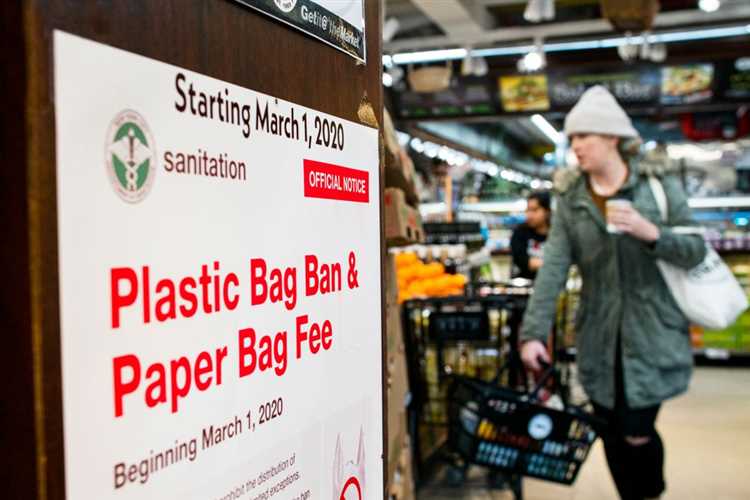
Plastic waste has become a major environmental issue worldwide, prompting countries, organizations, and individuals to take action in reducing its use. The movement towards reducing plastic waste has gained significant momentum in recent years, with many governments implementing policies and regulations to discourage the consumption of single-use plastics.
One of the key aspects of this global movement is the push to phase out plastic bags in grocery stores. Plastic bags are often used for carrying groceries and other items, but they contribute to a significant amount of plastic waste that ends up in landfills or pollutes the oceans and other natural habitats.
Many countries have already implemented bans or taxes on plastic bags, which has led to a decrease in their usage and a shift towards reusable bags. For example, countries like Kenya, Rwanda, and Bangladesh have completely banned plastic bags, while others like Ireland and France have introduced plastic bag taxes to discourage their use.
In addition to government interventions, many grocery store chains and retailers have also taken steps to reduce their reliance on plastic bags. Some have started charging for plastic bags, while others offer incentives for customers to bring their own reusable bags. This not only helps to reduce plastic waste but also encourages customers to be more mindful of their consumption habits.
Furthermore, consumers play a vital role in driving this movement towards reducing plastic waste. By choosing products with minimal packaging, opting for reusable bags, and supporting businesses that prioritize sustainable practices, individuals can contribute to the global effort to reduce plastic waste.
Overall, the global movement towards reducing plastic waste is gaining traction and bringing about positive changes. With the implementation of policies, initiatives, and individual efforts, it is hoped that the use of plastic bags in grocery stores and other single-use plastics will continue to decrease, leading to a cleaner and more sustainable future.
Key reasons behind the shift away from plastic bags
There are several key reasons why grocery stores are phasing out plastic bags and shifting towards more eco-friendly alternatives:
1. Environmental impact
Plastic bags are known for their detrimental impact on the environment. They are made from non-renewable fossil fuels, contribute to greenhouse gas emissions during production, and are not easily biodegradable. Plastic bags often end up in landfills or as litter, causing harm to wildlife and marine ecosystems.
2. Pollution and waste reduction
The shift away from plastic bags is part of broader efforts to reduce pollution and waste. By encouraging the use of reusable bags or alternative materials, grocery stores can help reduce the amount of plastic waste generated by consumers. This reduction can have a significant positive impact on the environment, as well as reduce the costs associated with plastic bag disposal.
3. Consumer demand for sustainability
Consumers are becoming increasingly aware of environmental issues and are demanding more sustainable practices from businesses. Many customers now prefer to shop at grocery stores that offer eco-friendly options and actively promote the reduction of single-use plastic. Phasing out plastic bags aligns with these consumer demands and helps establish a positive brand image for grocery stores.
In conclusion, the shift away from plastic bags is driven by concerns about the environment, the need to reduce pollution and waste, and increasing consumer demand for sustainability. Adopting more eco-friendly alternatives demonstrates a commitment to responsible business practices and can help grocery stores attract and retain environmentally conscious customers.
Innovative solutions: Exploring biodegradable and compostable options
Grocery stores worldwide are actively seeking innovative solutions to replace traditional plastic bags with more environmentally friendly alternatives. Biodegradable and compostable options have emerged as promising alternatives that can significantly reduce the negative impact of plastic waste on the environment.
| Biodegradable bags | Compostable bags |
|---|---|
| Biodegradable bags are made from materials that can break down into natural elements through natural processes, such as decomposition with the help of microorganisms. | Compostable bags, on the other hand, are specifically designed to be broken down into nutrient-rich compost that can be used for soil improvement. |
| These bags are typically made from materials like bioplastics, which are derived from renewable sources like plant starches or vegetable oils. | Compostable bags are often made from biodegradable materials like cornstarch or sugarcane, which can be easily broken down in composting facilities. |
| While biodegradable bags can degrade naturally, they may still leave behind microplastics that can take a long time to fully break down. | Compostable bags do not leave any harmful residues behind and are designed to fully break down within a specific timeframe in proper composting conditions. |
| Even though biodegradable bags offer a more eco-friendly option compared to traditional plastic bags, they still require specific conditions, such as exposure to sunlight and oxygen, to degrade effectively. | Compostable bags, on the other hand, will not break down in a landfill and need to be processed in commercial composting facilities. |
| Many grocery stores are starting to offer biodegradable bags as an alternative to plastic, but compostable bags are gaining popularity due to their more sustainable nature. | Compostable bags provide a more circular solution as they can be turned into beneficial compost, helping to close the loop on waste management. |
In conclusion, the exploration of biodegradable and compostable options for replacing plastic bags in grocery stores is a positive step towards reducing plastic waste. While both options have their advantages and considerations, compostable bags seem to offer a more complete and sustainable solution. With continued advancements in technology and increased adoption by consumers and businesses, these innovative alternatives have the potential to make a significant impact on our efforts to preserve the environment.
The role of legislation and government initiatives
As the negative environmental impact of plastic bags becomes more widely recognized, governments around the world are taking action to phase them out. Legislation and government initiatives play a crucial role in encouraging grocery stores to eliminate plastic bags and adopt more sustainable alternatives.
In many countries, laws have been passed that ban or impose charges on single-use plastic bags. These regulations aim to reduce plastic waste and promote the use of reusable bags. For example, several states in the United States have implemented plastic bag bans or fees, including California, New York, and Hawaii. Similarly, countries like Ireland, Bangladesh, and Rwanda have instituted strict bans on plastic bags, resulting in significant reductions in their usage.
Government initiatives go beyond regulations and involve educating the public about the environmental consequences of plastic bags. Through awareness campaigns and educational programs, governments can encourage consumers to make more sustainable choices when shopping. These initiatives often highlight the benefits of reusable bags and provide information on where to purchase them.
Benefits of legislation and government initiatives:
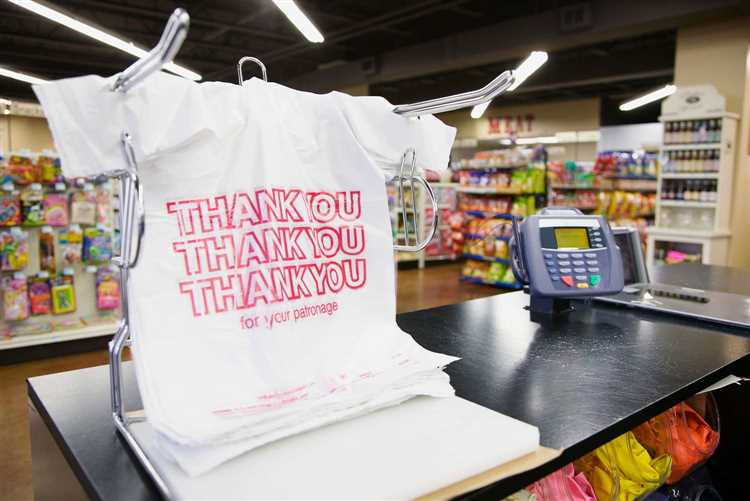
- Reduction in plastic waste: By implementing bans or fees on plastic bags, governments can significantly reduce the amount of plastic waste generated.
- Encouragement of sustainable alternatives: Legislation and government initiatives promote the adoption of reusable bags, encouraging consumers to choose more environmentally friendly options.
- Positive impact on the environment: Phasing out plastic bags helps reduce pollution, conserve resources, and protect wildlife, leading to a healthier planet.
- Increased awareness: Government initiatives raise awareness about the environmental consequences of plastic bags, prompting individuals to rethink their choices and make more informed decisions.
Overall, legislation and government initiatives are instrumental in driving the transition away from plastic bags in grocery stores. By creating regulations, educating the public, and promoting sustainable alternatives, governments can play a vital role in reducing plastic waste and protecting the environment for future generations.
The challenges and considerations faced by grocery stores
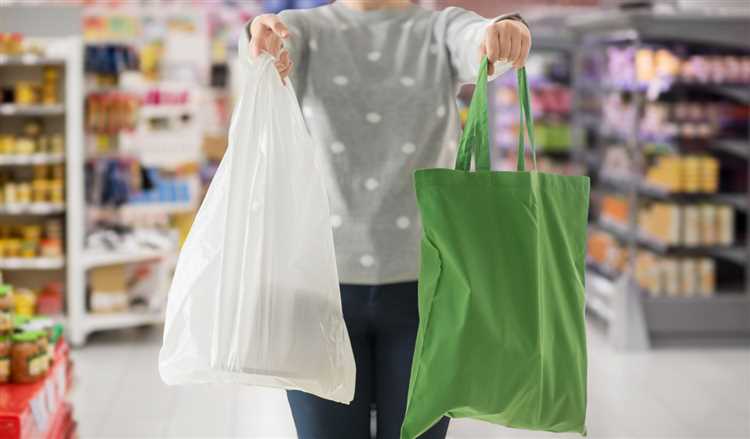
Grocery stores are facing a number of challenges as they consider the implementation of policies to phase out plastic bags. These challenges include:
1. Environmental Impact
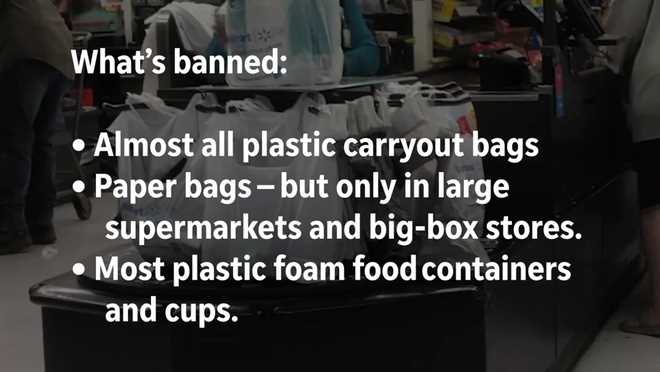
One of the main considerations for grocery stores is the environmental impact of plastic bags. They are aware of the negative consequences of plastic pollution, including harm to wildlife and the difficulty of plastic recycling. Grocery stores recognize the need to find alternative solutions that are more eco-friendly.
2. Customer Convenience
Another challenge faced by grocery stores is ensuring customer convenience throughout the transition. Many shoppers are accustomed to the ease and convenience of plastic bags for carrying their groceries. Introducing new packaging options or encouraging customers to bring their own reusable bags can be met with resistance. Grocery stores must find ways to make the transition as seamless and convenient as possible for customers.
3. Cost Considerations
The implementation of alternatives to plastic bags may also come with financial considerations for grocery stores. While plastic bags are inexpensive, alternatives like reusable bags or biodegradable packaging may have higher costs. Grocery stores need to carefully evaluate the economic impact of implementing these changes and consider the potential increase in expenses.
In conclusion, while the phasing out of plastic bags presents numerous challenges for grocery stores, they are actively considering and addressing these issues. By finding sustainable alternatives, ensuring customer convenience, and evaluating the financial implications, grocery stores can successfully navigate the shift away from plastic bags and contribute to a greener future.
Tips for consumers: How to reduce your own plastic bag usage
As consumers, there are plenty of steps you can take to reduce your own plastic bag usage. By making simple changes to your shopping habits, you can help minimize the environmental impact of plastic bags. Here are some tips to get you started:
| 1. Bring your own reusable bags | Invest in a few high-quality reusable bags and keep them handy when you go shopping. By using your own bags, you can avoid the need for plastic bags altogether. |
| 2. Opt for paper or biodegradable bags | If you do forget your reusable bags, choose paper bags or bags that are biodegradable. These options are more environmentally friendly than traditional plastic bags. |
| 3. Say no to unnecessary bags | When making small purchases, politely decline a bag if you can easily carry the item in your hand or in a pocket. This simple action can significantly reduce your plastic bag usage over time. |
| 4. Use your own produce bags | Instead of using the plastic produce bags provided at grocery stores, bring your own reusable produce bags. These mesh bags are lightweight and can be easily washed and reused. |
| 5. Plan ahead | Try to plan your shopping trips in advance to avoid last-minute purchases. By planning ahead, you can make sure you have your reusable bags with you and reduce the need for plastic bags. |
| 6. Encourage others to do the same | Spread awareness about the importance of reducing plastic bag usage. Encourage your friends, family, and community to adopt eco-friendly alternatives and make a collective effort to reduce plastic waste. |
By following these tips, you can make a positive impact on the environment and help minimize the use of plastic bags. Remember, every small change counts!
Question-answer:
What are some of the latest updates on the phasing out of plastic bags in grocery stores?
One of the latest updates on the phasing out of plastic bags in grocery stores is that more and more big grocery chains are joining the movement. For example, Walmart announced that it will eliminate single-use plastic bags in all its U.S. stores by 2025. This is a significant step towards reducing plastic waste.
Why are grocery stores phasing out plastic bags?
Grocery stores are phasing out plastic bags because of the negative impact they have on the environment. Plastic bags take hundreds of years to decompose and often end up in landfills or pollute oceans, harming wildlife. By phasing out plastic bags, grocery stores are taking a step towards reducing plastic waste and promoting sustainable practices.
Are all grocery stores phasing out plastic bags?
Not all grocery stores are phasing out plastic bags, but the trend is definitely moving towards their elimination. Many big grocery chains have announced plans to phase out plastic bags in the coming years. However, there are still small independent stores that continue to use plastic bags.
What are some alternatives to plastic bags that grocery stores are offering?
Grocery stores are offering a variety of alternatives to plastic bags. One common alternative is paper bags, which are more environmentally friendly and biodegradable. Some stores also offer reusable bags made of fabric or other materials, encouraging customers to bring their own bags. Additionally, some stores are experimenting with more innovative options, such as compostable bags made from plant-based materials.
What can individuals do to support the phasing out of plastic bags?
There are several things individuals can do to support the phasing out of plastic bags. Firstly, they can bring their own reusable bags when shopping at grocery stores. This reduces the reliance on plastic bags and promotes the use of more sustainable alternatives. Secondly, individuals can support grocery stores that have already phased out plastic bags by shopping at these stores. Finally, individuals can spread awareness about the negative impact of plastic bags and encourage others to adopt more eco-friendly practices.
Are grocery stores really phasing out plastic bags?
Yes, many grocery stores are indeed phasing out plastic bags. In an effort to reduce plastic waste and promote sustainability, many grocery stores have started implementing measures to reduce or eliminate the use of plastic bags. This includes offering reusable bags, promoting the use of paper bags, and charging customers for plastic bags.